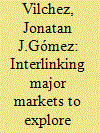| Srl | Item |
| 1 |
ID:
115634


|
|
|
|
|
| Publication |
2012.
|
| Summary/Abstract |
Even though energy poverty alleviation and climate change mitigation are inextricably linked policy goals, they have remained as relatively disconnected fields of research inquiry and policy development. Acknowledging this gap, this paper explores the mainstream academic and policy literatures to provide a taxonomy of interactions and identify synergies and trade-offs between them. The most important trade-off identified is the potential increase in energy poverty levels as a result of strong climate change action if the internalisation of the external costs of carbon emissions is not offset by efficiency gains. The most significant synergy was found in deep energy efficiency in buildings. The paper argues that neither of the two problems - deep reductions in GHG emissions by mid-century, and energy poverty eradication - is likely to be solved fully on their own merit, while joining the two policy goals may provide a very solid case for deep efficiency improvements. Thus, the paper calls for a strong integration of these two policy goals (plus other key related benefits like energy security or employment), in order to provide sufficient policy motivation to mobilise a wide-scale implementation of deep energy efficiency standards.
|
|
|
|
|
|
|
|
|
|
|
|
|
|
|
|
| 2 |
ID:
176840


|
|
|
|
|
| Summary/Abstract |
The purpose of this research is to investigate policy synergies and market interdependencies in the field of alternative powertrain technologies. The methodology is based on a simulation model grounded on system dynamics, a method that focuses on the structure (particularly feedback processes) and behavior over time of complex systems. The impacts of four policy measures on the uptake of electric cars in six countries (China, France, Germany, India, Japan and the United States), each segmented in five consumer groups, are explored. We observe that the additive impact of individual policies is lower than the impact of a corresponding policy package and that the impact of a policy package is greater if pursued by countries jointly. The implications of these findings are that the uptake of electric powertrains may depend not only on the combined impact of country-specific policy measures but also on the joint effect of policies in key electric car markets. The originality of this research arises from the endogenization of the electric car battery price evolution by explicitly modeling policy packages in six major car markets and interlinking them.
|
|
|
|
|
|
|
|
|
|
|
|
|
|
|
|
| 3 |
ID:
129041


|
|
|
|
|
| Publication |
2014.
|
| Summary/Abstract |
Regime complexes or overlapping regimes relating to a common subject matter create policy coherence challenges at the national level. Recent research has observed a positive correlation between regime complexes and policy coherence: improved regime integration enables greater policy coherence and vice versa. Policy coherence has nonetheless been approached as a problem of foreign policy and not yet as a problem of public policy. This article examines the coevolution of regime complexes and (public) policy coherence in the context of international biodiversity governance, with a focus on the cluster of biodiversity-related conventions and their implementation in countries of Latin America and the Caribbean. It shows that global synergies in the biodiversity cluster have advanced more rapidly than national coordination of implementation activities. Feedback loops between governance levels have not been strong enough to bridge that gap. The article concludes that more symmetrical evolutions require deliberate cross-level management.
|
|
|
|
|
|
|
|
|
|
|
|
|
|
|
|
| 4 |
ID:
171530


|
|
|
|
|
| Summary/Abstract |
Energy transition is increasingly regarded as a promising opportunity for the economic development of rural areas. This possibility is associated with the siting and (co-)ownership of decentralized (small-scale) renewable energy facilities. The underlying productive link, however, has been taken for granted, rather than conceptually and practically cultivated. Thus, while renewable energy-based rural development has been stated as a desired by-product of energy transitions, its potential has remained largely unfulfilled. This review aims to illuminate the ambiguous interplay between renewable energy and rural development in the context of the current trajectories of the energy transition. In doing so, we first examine different ways renewable energy may contribute to rural development and explore how the synergetic conflation of renewable energy and rural development has played out in Denmark and Scotland, as two countries that have forged ahead with renewable energy in rural areas. Second, we draw on the different experiences in the two countries to critically discuss policy-related mismatches that hamper a more efficient contribution of renewable energy to rural development, and sketch out some thoughts about the need to bring rural matters and rural communities into the discussion if the synergies between energy transition and rural development are to be taken seriously.
|
|
|
|
|
|
|
|
|
|
|
|
|
|
|
|